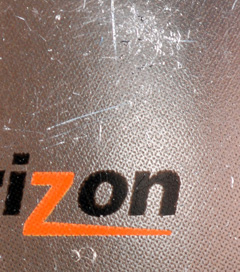Did you know that Truthout is a nonprofit and independently funded by readers like you? If you value what we do, please support our work with a donation.
Verizon needs to open a call center, which means a few new low-paying jobs. They get local governments bidding against each other, offering all kinds of tax breaks if only they'll bring those jobs there.
Before the bidding war these jobs will be in the economy somewhere, but local schools, police, etc. will be funded.After the bidding war the same number of jobs open up but schools, police, etc. are not funded — and the 1% are that much richer. Company after company does this. Community after community, desperate for jobs, loses. Schools, police, infrastructure go unfunded. Just who does this help? The 1%.
Earlier this month, the organization Citizens for Tax Justice joined with the Institute on Taxation and Economic Policy to release a report, “Corporate Taxpayers and Corporate Tax Dodgers, 2008-2010.” The report looked at 280 corporations, finding that 78 did not pay federal taxes in at least one of the past three years and 30 averaged a less-than-zero tax bill in the last three years. Yes, less-than-zero, meaning they got money from the government instead of paying taxes to the government.
Verizon In Focus
Now a report by Citizens for Tax Justice and Good Jobs First, ““Unpaid Bills: How Verizon Shortchanges Government Through Tax Dodging and Subsidies,” looks at one company in particular. I've been writing about how Verizon is very, very profitable, but is trying to force its workers to give up ever more pay, benefits, job security and dignity. The company's workers are engaged in an effort to preserve a middle-class existence.
Yesterday I joined a press call that hilited this Verizon report. The company aggressively manipulated state tax rules, demanded subsidies, and used other methods to end up with a negative federal income tax rate, and receiving state and local tax subsidies in at least 13 states. When setting up call centers, for example, they offer localities the prospect of jobs that that will be created somewhere in US, where the company would have paid taxes to fund schools and infrastructure, but get the localities bidding against each other until they end up making a profit instead of paying taxes.
From the report,
With more than $100 billion in annual revenues and nearly $15 billion in operating profits, Verizon
Communications is a large and prosperous company that should pay a substantial amount in taxes to
federal, state and local governments.
- Verizon enjoyed some $14 billion in federal and state corporate income tax subsidies in the 2008-2010 period even though it earned $33.4 billion in pre-tax U.S. income during that time.
- At the federal level, Verizon should have paid about $11.4 billion at the statutory rate of 35 percent during the three-year period. Instead, it got $951 million in rebates, putting its federal tax subsidies at $12.3 billion. Its effective federal tax rate was -2.9 percent.
- At the state level, Verizon should have paid about $2.3 billion in corporate income taxes during the period but it handed over only $866 million. Its aggregate state rate was only 2.6 percent, far below the weighted state average rate of 6.8 percent. This gave it state tax subsidies of about $1.4 billion.
- Verizon also used a special tax loophole called the ReverseMorrisTrust to avoid paying about $1.5 billion in federal and state and local taxes on the sale of its landline assets in various states.
- Verizon also aggressively seeks state and local tax subsidies through credits, abatements and exemptions. There is no centralized reporting on these subsidies but in this report we document $180 million in special tax breaks and grants Verizon and VerizonWireless received in 13 states.
Trump is silencing political dissent. We appeal for your support.
Progressive nonprofits are the latest target caught in Trump’s crosshairs. With the aim of eliminating political opposition, Trump and his sycophants are working to curb government funding, constrain private foundations, and even cut tax-exempt status from organizations he dislikes.
We’re concerned, because Truthout is not immune to such bad-faith attacks.
We can only resist Trump’s attacks by cultivating a strong base of support. The right-wing mediasphere is funded comfortably by billionaire owners and venture capitalist philanthropists. At Truthout, we have you.
Truthout has launched a fundraiser, and we must raise $31,000 in the next 4 days. Please take a meaningful action in the fight against authoritarianism: make a one-time or monthly donation to Truthout. If you have the means, please dig deep.
